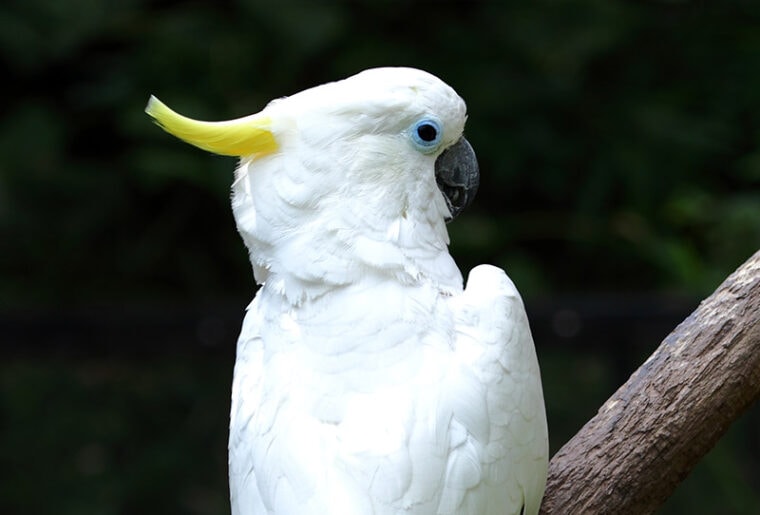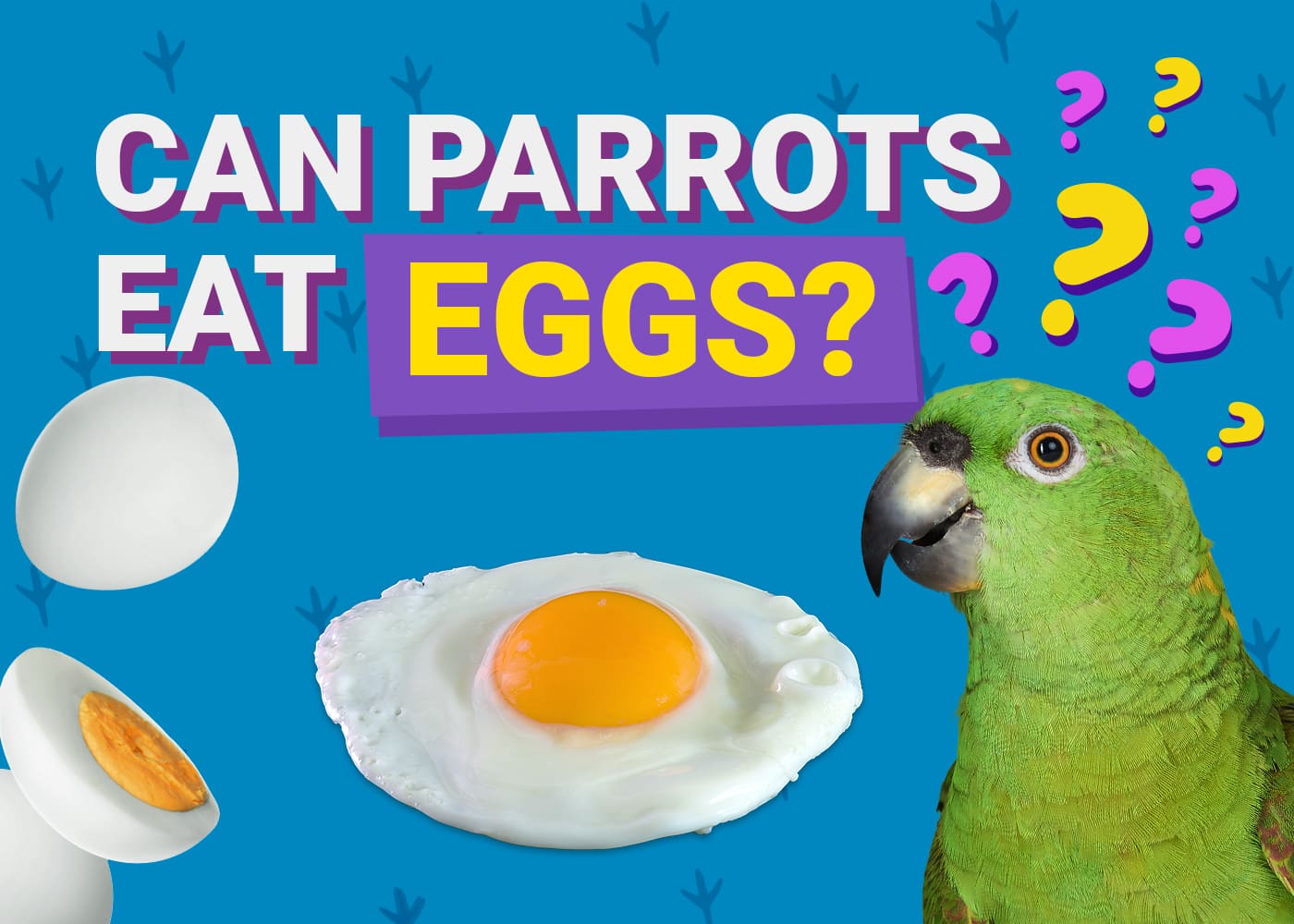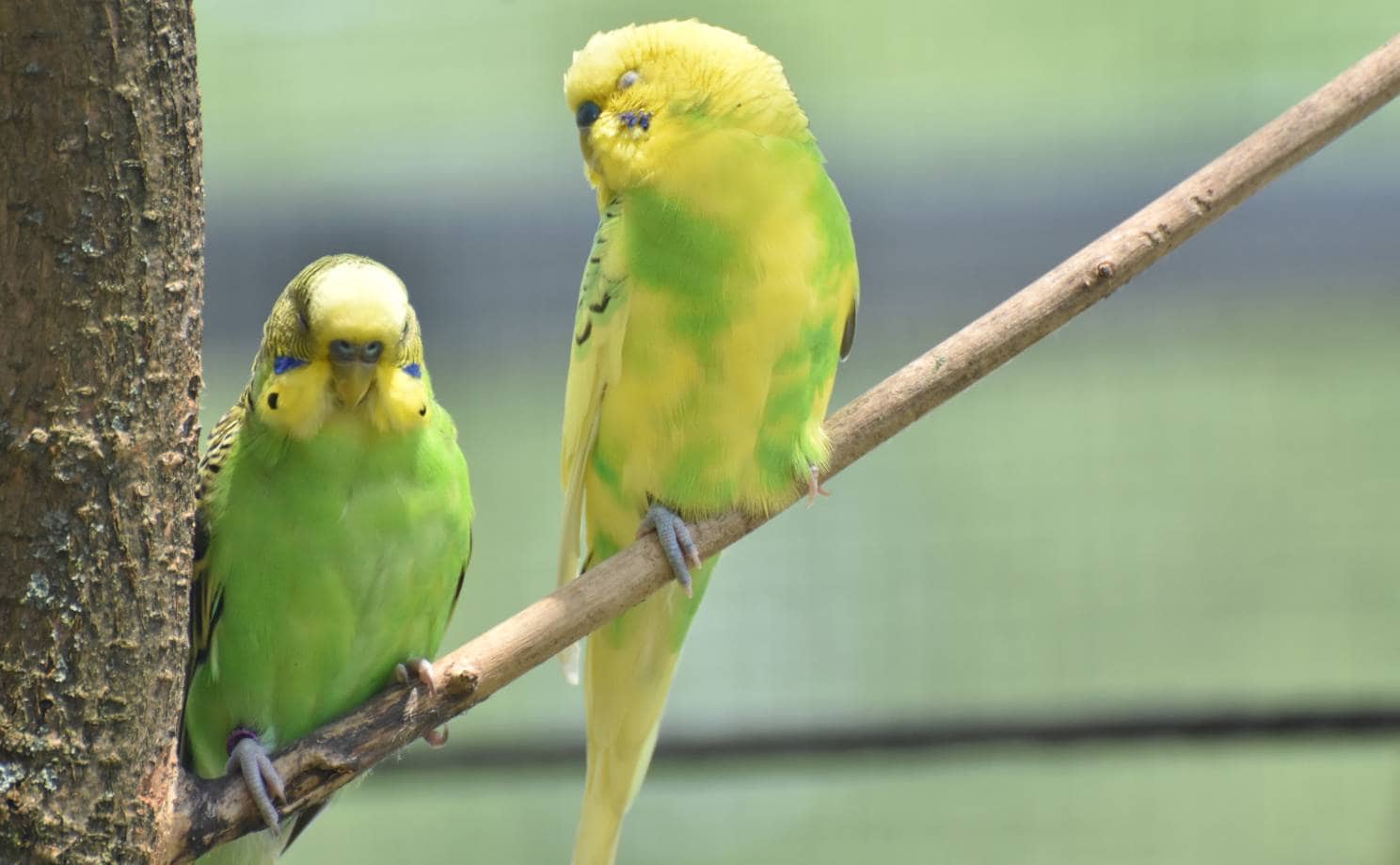
Are you considering buying a triton cockatoo, but unsure whether or not it will be a good fit for your home? In this article, we break down every aspect of the triton cockatoo, from its origin and history to its temperament, common health problems, and things you should know about caring for one of these animals.
 Species Overview
Species Overview
| Common Names: | Triton cockatoo, sulphur-crested cockatoo, great sulphur-crested cockatoo |
| Scientific Name: | Cacatua galerita triton |
| Adult Size: | Up to 20 inches tall, weighing up to 2 pounds |
| Life Expectancy: | Up to 80 years |
Origin and History
The triton cockatoo is native to Indonesia, New Guinea, and the West Papuan Islands. Triton cockatoos are not their own distinct species, but a subspecies of the better-known sulphur-crested cockatoo. You can tell triton cockatoo from its sulphur-crested cousin because it is smaller, has a blue ring around its eye, and has broader feathers on its crest.

Temperament
Overall, the triton cockatoo is known for being very affectionate, intelligent, and playful, making these birds attractive pets. However, the triton cockatoo is also known for being excessively attached to its owner and can even become needy. They tend to form a very strong bond with their primary caretaker, but may not be as friendly with other humans and can even be aggressive.
Unfortunately, they also have a propensity for screaming, which can make them difficult to manage. Sadly, as a result of this behavior, many triton cockatoos are rehomed. Thankfully, tritons are intelligent and can learn new things fairly quickly. With patience and persistence, it is possible to train your bird to perform certain behaviors and even lessen unwanted screeching and other verbalizations. Due to the amount of noise these birds are capable of making, however, it is not recommended that you keep your triton in an apartment or condo where your neighbors live in close proximity.
Speech & Vocalizations
As stated, triton cockatoos are very vocal creatures that tend to “scream” or shriek fairly often. Despite the fact that they are vocal animals, they aren’t particularly well known for their ability to mimic human speech the way that other parrots can. However, they can learn a few words or phrases.
Triton Cockatoo Colors and Markings
Triton cockatoos tend to be mostly white with their signature blue eye ring. It can be difficult to tell males from females, but females usually have eyes that are a reddish-brown color, whereas males’ eyes are usually a much darker brown color. They are distinct from the sulphur-crested cockatoo, whose eyes are typically black and have a white, not blue, ring. Sulphur-crested cockatoos are also significantly larger than triton cockatoos and can grow to be up to 30 inches tall. Both birds feature a “crest” on top of their heads that is made up of a tuft of feathers. The triton cockatoo’s crest tends to be yellow.
Caring for the Triton Cockatoo
When choosing a cage for your triton cockatoo, make sure to choose something that is relatively large. These birds need lots of physical activity and can sometimes be destructive, so it’s important to provide a cage that is sturdy. Ideally, the cage should be no smaller than 4’ x 4’ x 8’. If you plan to house more than one bird in the same cage, the enclosure should be much larger. However, it’s important to keep in mind that cockatoos, particularly triton cockatoos, can actually be somewhat aggressive animals. As a result, it may be wise to keep your birds in separate cages. Make sure to provide your pet with plenty of perches, toys, and branches to offer plenty of opportunities for mental and physical activity.
In addition to providing opportunities for exercise and play within your bird’s cage, it is just as important to give your triton cockatoo time to explore outside of the cage. If possible, you will want to supervise this out-of-cage time, as birds are known for chewing and may chew on things they aren’t supposed to, such as your couch.
Grooming your triton cockatoo is fairly simple. One thing you may not know about cockatoos is that you need to bathe them regularly. In nature, cockatoos get the moisture they need from rain, but in captivity, they need to shower about once per week. You can actually attach a perch to your shower wall and bring your bird into the shower with you—just make sure the water isn’t too hot!

Common Health Problems
Overall, triton cockatoos are relatively healthy creatures, but they are prone to the same types of health problems that other parrot species tend to develop. Your bird may be experiencing a health issue if you have noticed any of the following symptoms: more frequent sleeping, inactivity or general disinterest in surroundings, changes in vocalization, trembling, fluffed feathers, breathing changes, drooped wings, changes in urine or feces, vomiting, or noticeable weight loss. Below, we have created a list of specific health issues you should be on the lookout for:
Diet and Nutrition
In the wild, cockatoos and other birds typically eat a mixture of seeds, nuts, vegetation, berries, roots, blossoms, and sometimes insects. In captivity, the typical cockatoo diet tends to be pellet-based with fresh fruit and lightly cooked vegetables to supplement. You can offer your pet bird seeds, but limit the amount they eat; commercial seeds tend to be high in fat while also being void of important nutrients such as calcium. Your triton cockatoo’s diet should be about 75%-80% pellets since pellets are specifically formulated to meet your cockatoo’s nutritional requirements. The remaining 25%-30% can be leafy greens, fruits, and vegetables. Try to avoid vegetables with a high water content such as iceberg lettuce and celery, as they do not offer much nutritional benefit, and be aware of fruits and vegetables that are considered toxic to birds.

Exercise
As stated, your cockatoo needs plenty of time outside of its cage in order to meet its daily exercise requirements. Aim for at least 2-3 hours, but note that more out-of-cage time is not a bad thing if you have the time to supervise your bird. In addition to giving your cockatoo a chance to explore and spread its wings, you can play games, such as fetch, with your bird to increase its chances for physical activity.
Where to Adopt or Buy a Triton Cockatoo
If you are interested in adopting a triton cockatoo, you can check your local animal shelter or use a service such as Petfinder to search for triton cockatoos in your area. If you aren’t able to find one of these birds in a shelter, you will likely need to go with a breeder. If you plan to buy a triton cockatoo, you should know that one of these birds can cost between $500 and $3,000 depending on the breeder. Make sure to research a breeder before you purchase an animal; not all breeders have your animal’s best interest at heart.
 Final Thoughts
Final Thoughts
Triton cockatoos can be good pets, but they aren’t for everyone. They require a specific type of owner who has the patience to live with and correct a cockatoo’s habit of screeching. If you have other birds, the triton cockatoo may not be a good fit for you because it has a tendency to be aggressive with others. However, if you are a single or couple looking for a loyal and affectionate companion, the triton cockatoo could be the pet for you!
Featured Image Credit: Vishal shinde, Shutterstock

 Species Overview
Species Overview






